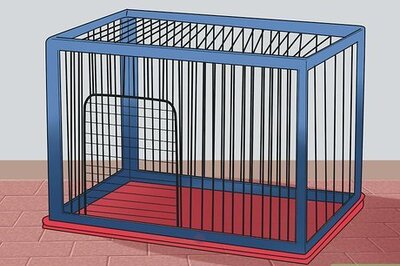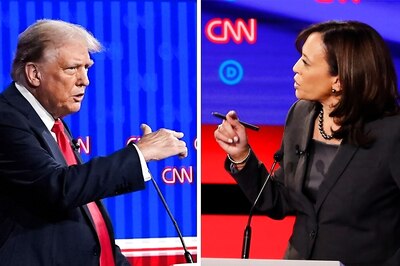
views
SHANGHAI: A team from the World Health Organization (WHO) will arrive in the central Chinese city of Wuhan on Thursday to begin investigating the origins of the COVID-19 pandemic.
Following is a timeline looking at key events in the relationship between China and the WHO since the outbreak began.
2019
Dec 31: World Health Organization first notified by China of “pneumonia of unknown cause”. WHO says its China office picked up a report of “viral pneumonia” from Wuhan Municipal Health Commission website and asked Chinese authorities for more information.
2020
Jan 3: China begins regular briefing with WHO about the outbreak of “viral pneumonia of unknown cause” in Wuhan.
Jan 5: WHO says it has asked China for more information and advises other member states to take precautions.
Jan 9: China tells WHO a newly discovered coronavirus is the cause of the outbreak.
Jan 10: Chinese officials hold phone meeting with WHO Director-General Tedros Adhanom Ghebreyesus. China shares information about how the coronavirus is detected.
Jan 11: After reporting the first official fatality from the disease, China shares genome sequence of the coronavirus with WHO.
Jan 14: WHO tweets that “preliminary investigations conducted by China have found no clear evidence of human-to-human transmission”. WHO expert Maria Van Kerkhove tells news conference the same day “it is certainly possible that there is limited human-to-human transmission”.
Jan 20-21: WHO sends delegation to Wuhan. Chinese experts share detection and treatment protocols with WHO delegation.
Jan 25: China’s National Health Commission said in a letter to WHO’s Tedros that it would welcome international experts to China to help “strengthen epidemic prevention and control”.
Jan 28: President Xi meets Tedros in Beijing and says China has responded in a timely, open, transparent and responsible manner, and is ready to work with the WHO and the international community.
Jan 30: WHO declares outbreak to be a public health emergency of global concern – its highest alert level.
Feb 16: 25-member China-WHO team begins nine-day field trip in China. They arrive in Wuhan on Feb. 22 and learn about epidemic control measures and medical treatments.
Feb 24: Joint team holds news conference in Beijing and says China’s actions slowed the spread of the epidemic and prevented or delayed hundreds of thousands of cases.
Feb 28: Joint team publishes report praising the “remarkable speed” at which China isolated the virus, established diagnostic tools and learned how the virus was transmitted.
April 14: President Donald Trump announces halt to U.S. funding for WHO, accusing it of being biased towards China and failing in its duties.
April 18: Senior diplomat Wang Yi rebukes U.S. criticism of WHO in phone conversation with Tedros.
April 22: Australia calls for independent investigation into COVID-19 origins, further angering Beijing. China’s ambassador to Australia Cheng Jingye says the call is “politically motivated”.
May 19: Annual ministerial meeting of WHO’s 194-member states passes resolution calling for an “impartial, independent and comprehensive evaluation” of global COVID-19 response to be launched at the earliest opportunity. Evaluation should include the “zoonotic source of the virus and the route of introduction to the human population.” China and the United States also sign.
May 20: U.S. Secretary of State Mike Pompeo accuses China of denying investigators access to facilities, withholding virus samples and censoring discussion.
July 8: United Nations says it received formal notice from the United States to withdraw from WHO. President Trump accuses WHO of “alarming lack of independence” from China.
July 9: WHO sets up independent panel chaired by former New Zealand Prime Minister Helen Clark and former Liberian President Ellen Johnson Sirleaf to examine global pandemic response.
Sept 17: Independent panel sets terms of reference for inquiry, saying it aims to establish “the timeline and events which culminated in COVID-19 becoming a global pandemic”.
Dec 18: WHO says it will send a team of 10 scientists to Wuhan “next month”. Independent panel says it is now “well advanced” in its preparation of chronology about the global spread of COVID-19.
2021
Jan 6: WHO’s Tedros expresses disappointment WHO experts have not yet been granted visas to begin the investigation.
Jan 11: Chinese health authorities confirm a WHO team will arrive in Wuhan on Jan. 14.
Disclaimer: This post has been auto-published from an agency feed without any modifications to the text and has not been reviewed by an editor
Read all the Latest News, Breaking News and Coronavirus News here




















Comments
0 comment